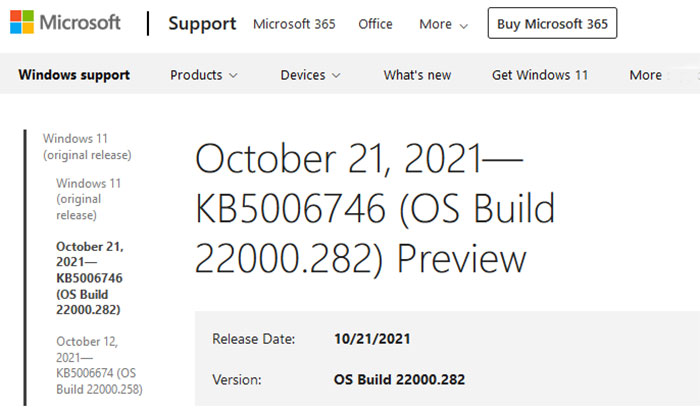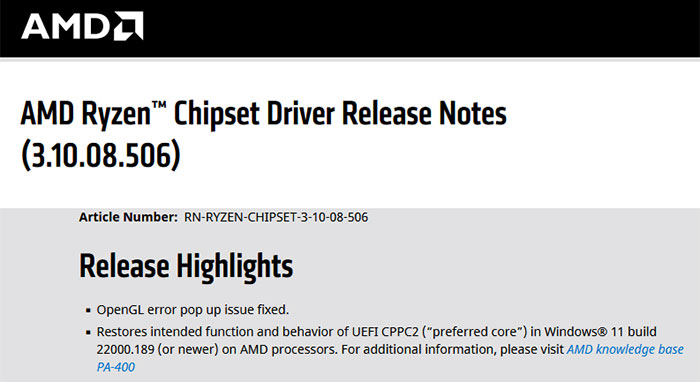In early October, HEXUS reported on AMD Ryzen performance issues on Windows 11. Microsoft's latest OS had only just started to be rolled out as a finished product the week previously, so it wasn't so surprising to see such bugs surface. Nevertheless, Microsoft and AMD acknowledged the performance-impacting issues, and said they would resolve them before the month was out. In mid-October, Microsoft indicated it was nearly ready to release its OS patch, as it started to test it on Windows 11 Insider beta builds.
Updates to fix both the Ryzen L3 cache latency and AMD 'preferred core' technology (CPPC2) bugs are both now ready for general consumption, and are available to download.

The Windows 11 Ryzen L3 cache latency bug can now be quashed by users of Microsoft's newest OS via a quick visit to Windows Update settings. If you head on over to the Windows support site and read about OS Build 22000.282, you will be presented with a chunky list of highlighted fixed that the latest build addresses. Among the 'improvements and fixes' bullet points (but not a 'highlight') you will spot the following:
- Addresses an L3 caching issue that might affect performance in some applications on devices that have AMD Ryzen processors after upgrading to Windows 11 (original release).
Please note that the Microsoft fix for KB5006746 is optional, so you should go and give it a prod in Windows Update if you want it, at this time.
With that out of the way, one might be wondering about the CPPC2 bug fix. This must have been out of the scope of Microsoft's Windows 11 update system, as AMD has published a fix to the preferred core technology ignoring OS via a new chipset driver, version 3.10.08.506.

Once you have downloaded and applied the latest chipset driver from AMD, it asks that you check the following:
- For AMD processors with the “Zen 3” architecture: Systems configured with AMD Chipset Driver 3.10.08.506 (or newer) should report version 7.0.3.5 (or newer) for the AMD.Power.Processor.Settings entry in the Windows 11 Provisioning Packages interface.
- For AMD processors with the “Zen+” or “Zen 2” architectures: Systems configured with AMD Chipset Driver 3.10.08.506 (or newer) should have the AMD Ryzen Balanced power plan selected and active in the Control Panel > Power Options interface.
If any HEXUS readers have been suffering from reduced AMD Ryzen performance in Windows 11 it would be interesting to read your thoughts on the patch impacts, below.













